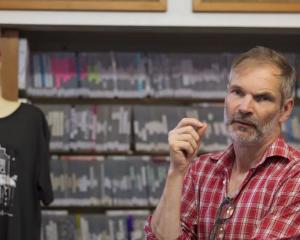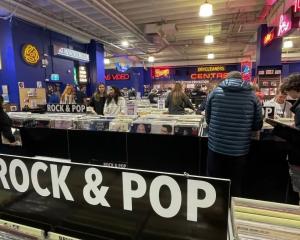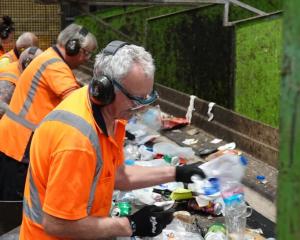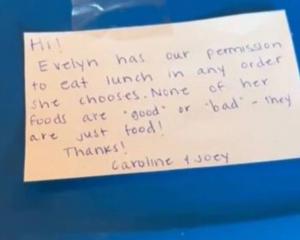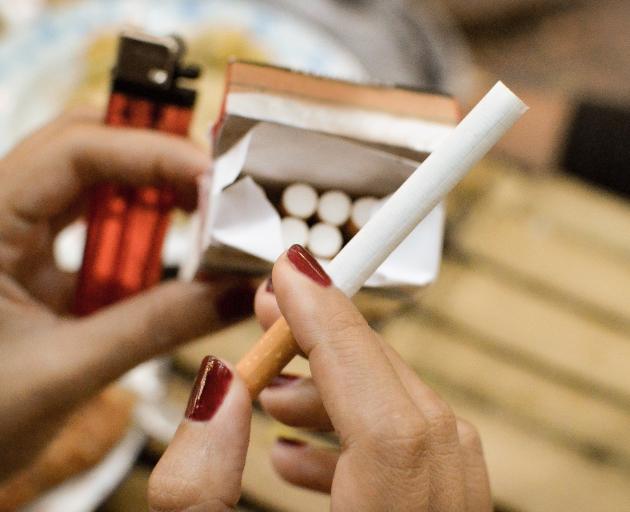
The legislation - passed by the Labour government mere months ago - would have banned the sale of tobacco to anyone born after 1 January 2009, reduced the number of outlets permitted to sell cigarettes from 6000 to 600 and removed 95 percent of nicotine from cigarettes.
Judith Mackay is the Director of the Asian Consultancy on Tobacco Control, based in Hong Kong, and a senior advisor to the World Health Organisation. With 40 years' experience fighting the tobacco industry and raising awareness of the dangers of smoking, she's been labelled one of the most dangerous people in the world by 'Big Tobacco'.
Dr Mackay joined Susie Ferguson on Saturday Morning to explain why the previous law was "wonderful" and tobacco industry will be "delighted" by the u-turn.
"Other countries have considered it [and] some states have done it, but New Zealand was really pioneering [in] the way this law would protect children. [It] got an awful lot of accolades from around the world."
The law had been called "prohibition" by its opponents. Mackay disputes this label.
"When people talk about prohibition... that's not really the way to go to ban cigarettes, because they look at the US and [the prohibition of] alcohol 100 years ago and it just led to crime and corruption."
Most countries were joining New Zealand in "pushing back all the frontiers" by raising taxes, introducing more smokefree areas and warnings on cigarette packs, she said. "And New Zealand was simply taking it one stage ... further and protecting generations to come."
The international community was looking on at our repeal of smokefree laws and was "aghast", she said.
"It does not send a good message to the rest of the world... Everybody is struggling with tobacco control policy - to make it in the first place [and] to implement it. To see a country like New Zealand with these u-turns and confusion is not good - not just for New Zealand but for global tobacco control."
Every country has to do all it can to reduce smoking, she said.
"We can't forget that smoking kills up to two-thirds of people who smoke. There's no other consumer product on the market that comes remotely close in terms of danger. None. And so it's ... the responsibility of a government to do everything it can to move forward... and to get those rates down to protect the people.
"Most people don't regard it as interference or a nanny state. They regard it as a government responsibility, just as it would be to... take out a cancer ... and make sure that the environment is safe for people. So New Zealand has done well up till now."
Ferguson asked whether the new government's opposition to the smokefree law - that it would drive the black market for cigarettes, lead to more crime and ram raids on small retailers - stemmed from the Big Tobacco playbook.
"If the government is going to introduce any effective measure, they [the tobacco industry] will say that it will lead to illicit trade. It will not work. It will cause small businesses to go out of business. This is par for the course."
It was common to argue that increased taxes on tobacco would lead to illicit trade, she said.
"For example, in Hong Kong our head of customs said three times in the last 10 years that there is no sign that the illicit cigarette market has deteriorated as a result of increase in tax. If you actually look at the figures, these are empty threats. But this is [the industry's] playbook. This is what they say time and time again."
Within tobacco control circles there is the concept of the "scream test", she said. "That if the tobacco industry screams, we know in fact it is a policy worth taking on. If they ignore an issue, then we know it probably won't really work - and they certainly scream at taxation. They scream at the banning of e-cigarettes, they scream at smokefree areas and bans."
However, there are few complaints about health education, which was proven not to prevent young people from smoking. "And they don't scream about... a ban on sales to under-16s because up to now the way it's worked has been shown to be ineffective."
New Zealand's now-repealed laws would certainly pass the scream test, she said. "It shows that what New Zealand was doing last year was on the right track, that it would reduce smoking rates and all the evidence is certainly in that direction. It would have [had] an impact in bringing down [rates], particularly in children [who were] thinking of taking up tobacco - we know that these measures are effective."
Ferguson said that the government has argued that a freeze on excise tax would help the poor, because smokers bear a heavy burden of the cost of cigarettes. Was that still a useful method to curb smoking?
Mackay said that globally this argument did not hold.
"Banks like the Asian Development Bank, the World Bank, the World Economic Forum ... reckon that taxation is a win-win measure in terms of reducing disease and disability, as well as increasing revenue."
Smoking was a "poverty trap" for the disadvantaged, she added, and by increasing taxes on cigarettes you prevented the young from starting and helped the poor to quit.
"It has a tremendous influence on their family income ... as well as their health. [Smoking] leads to household consequences in terms of diversion of family income. So by putting up the taxation, the government really helping the poor."
Ferguson asked whether New Zealand was perceived as having a "light touch" when it came to the regulation of vapes and e-cigarettes.
Mackay replied that together with England and Canada, New Zealand was seen to have "embraced" e-cigarettes.

She pointed to a study from Public Health England about a decade ago, suggesting that e-cigarettes were 95 percent safer than cigarettes. However, it was based on a small group of people and looked only at known toxins like nicotine and tar.
"What they did not do was to look at the social science. Are they a gateway for youth? Do they actually help people [stop] smoking? What about the advertising - this appalling advertising and promotion that, for example, you see in the US? This is not directed towards middle-aged and elderly smokers, it's all directed towards the young, the trendy, the non-smoking youth market and many countries now have banned it."
Hong Kong has completely banned the manufacture, importation and sale of vapes, she said.
"We've banned it on the basis we don't know what's in them... We don't know what the harm is. And ... even with cigarettes, we're now discovering new harms 100 years on, the evidence is still accumulating, so we certainly don't know the harm of these [new] products.
"We've have found that children who use these products are up to three times more likely to use combustible tobacco products in the future. It seems to offer little help in quitting. We've got this appalling advertising. We're worried that we're normalising tobacco use just as cigarette prevalence is falling."
Many low and middle-income countries were still struggling with the cigarette "epidemic", she said.
"So to add another epidemic of a new trendy product that so appeals to young people, most countries feel they can't really afford the risk. And WHO has come out pretty strongly: you ban or you regulate this product, and regulate it quite seriously.
"New Zealand is swimming against the tide in terms of what the rest of the world is doing."
Nicotine companies over the years had consistently misled the public about the addictive and dangerous nature of their products, Mackay said.
"So they've now changed their tactics into saying ... we want to be part of the solution. We want to work with you. But their job is to sell cigarettes. Their shareholders demand it of them. They have got to increase their products and their sales as much as they possibly can. And so they're not part of the solution, but they are certainly trying to ingratiate themselves with health authorities, with governments. By saying, you know, we're here to help you. We're the best to advise on our products and so on."
The World Health Organisation's Framework Convention on Tobacco Control is the only international convention since it was formed in the 1940s, she said.
"It basically says that the tobacco industry has no place at the table in the formulation of policy. Of course, they need to be consulted with government about implementation of smokefree areas on the impact of warnings and so on. But they have no place in the implementation of policy because the history is that they absolutely interfere and try and derail it."
The tobacco industry was, however, careful to abide by the laws of each country, she said, and smoking rates in places like Asia were gradually inching downwards.
"The good news is that our bodies are remarkably able - if caught in time - to undo some of the damage done by cigarettes, so it's always worth quitting.
"The even better news is that when people quit smoking, very quickly - even within a week - it starts to have beneficial effects in terms of your blood pressure. Certainly heart disease by five years is reduced dramatically and even the risk of cancer comes down within the decade.
The prevalence of smoking in Hong Kong - where she lives - is now in single figures, or 9.5 percent of the population. This had been achieved thanks to a complete ban on e-cigarettes and heated tobacco products.
"So Hong Kong and other countries have shown you can get the prevalence rates down without having to rely on [vapes]."
Ferguson asked Mackay what the tobacco industry might do in future to boost sales.
"I think the tobacco industry will not give up easily, for sure. They've got a very, very lucrative business. I mean their profits are bigger than the GDP of many countries. They are an incredibly powerful, well-financed industry and they fear no one. They fear no governments and their job is certainly to sell cigarettes and sell tobacco and nicotine products in whatever way, shape and form they can."
Ferguson asked about the impact of the smokefree law repeal combined with the lack of regulation around e-cigarettes.
"I think Big Tobacco will be delighted at what's happening in New Zealand at the moment and I think that's an indication that it will have severe consequences in terms of future tobacco use and the future health of people in New Zealand."
There was, however, an "army" around the world now working on tobacco control, she said.
"And it's become institutionalised. Instead of a few of us holding up placards almost as activists way back in the 1980s, it's become established, core public health policy. And so the tactics of the tobacco industry have changed, and I'm no longer a sort of lone voice in the wilderness.
"I often say I have the tobacco industry to thank for my ever going into tobacco control.
"I was in hospital medicine and three things happened. One was our wards were full of smokers, many of whom had end-stage disease. And I realised that the health of the community would never be improved by curative medicine.
"Secondly, I became very much involved with the women's movement and still I'm a very committed feminist. In those days, women's health was ... very gynaecological really, but I realised that more women were being killed by tobacco than by every method of birth control combined, and that, in fact tobacco was a women's issue.
"And then thirdly, BAT [British American Tobacco] - and I often credit them for this - put out a document saying that I was unrepresentative. You know, I didn't know what I was talking about. [That] they, the tobacco industry, were the best source of reliable information. That was it. That was my tipping point. I was so outraged.
"But I often say I thank British American Tobacco for my ... 40 years of working tobacco control. I mean, I just need to be threatened with another lawsuit or called another name - and I'm up and running again, Susie."


